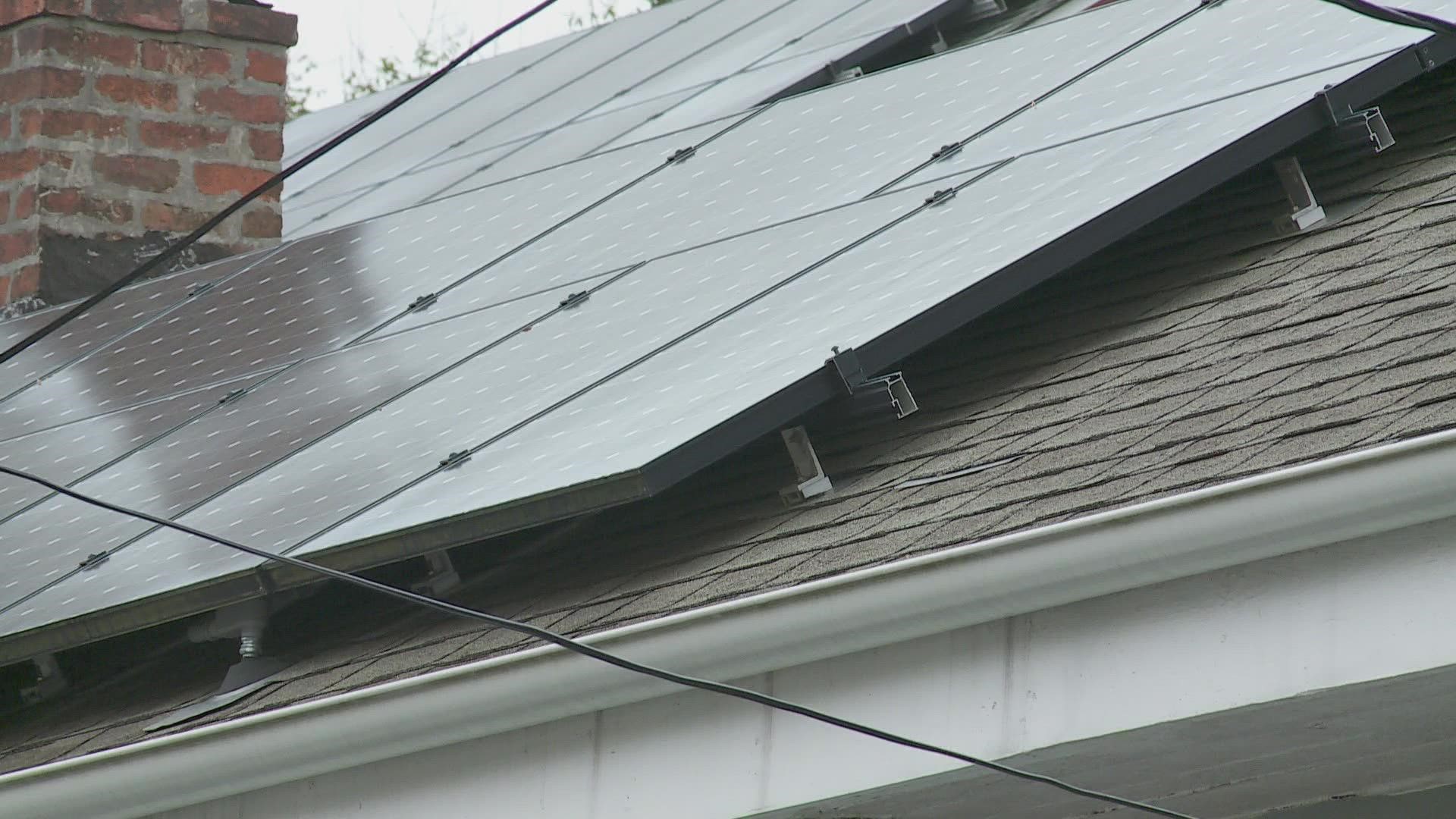NEW ORLEANS — Two local non-profits are teaming up to find an efficient way to keep the power on, even when the lights go out.
The idea is to put solar panels on neighborhood restaurants to keep them running in the aftermath of storms and create a community oasis without needing a generator.
"Right now we are going through, how should I say, a little bit of turmoil,” Roy Warren, who is without power more than a week after Hurricane Ida, said.
Without power, Warren has no way to power his oxygen machine. He wondered what he’d do, but then he got a little help from a friend.
“Red cross didn't come through here. FEMA probably doing their job, but they didn't come through here,” he said. “They got elderly people around here. That one man, Devin, he said 'what you need?’”
Devin De Wulf with Feed the Second Line and Krewe of Red Beans was able to charge Warren’s oxygen machine by using batteries powered by solar panels. He also created a free charging station and hooked up a few of his other neighbors’ fridges.
"So, we kind of anticipated this day would come, to connect to our solar panels. Which means that when the Entergy grid went offline that solar batteries automatically kicked in,” De Wulf said. “So, we basically made my block more resilient, helping people get through this really tough time."
Now, De Wulf and Franzisk Trautmann with Glass Half Full are taking this neighborhood idea and looking to expand it across the city.
These two groups are stating a fundraising effort to raise money and install solar panels and batteries on neighborhood restaurants in places where, typically, people can’t afford to evacuate.
These solar-powered resilience restaurants would serve as feeding, cooling and charging stations. There’s also no carbon monoxide involved. And since restaurants would be powered, they wouldn’t have to throw out all their food, cutting down on waste.
"All of that nasty food decomposes and stinks of up the place, but it becomes methane so our whole city, our whole Southeast Louisiana right now is just releasing tons of methane into the air,” De Wulf said. “Methane is ten times worth than carbon monoxide."
The solar panels cost about $60,000, but cut hundreds off monthly Entergy bills. De Wulf and Trautmann said they’ve created the fundraiser not just because it’s the efficient thing to do, but because it’s the right thing to do.
"The people who care about us the most are the people who are staying in this city and helping people, so we need to arm ourselves with the tools necessary,” Trautmann said. “Let's save lives. Let’s make our community stronger. Let's help ourselves, help ourselves.”
Back at Warren’s home, he loves the solar idea. He just hopes leaders are listening.
"For Devin and the red bean krewe and the rest of the people involved to get in like that — where are the politicians?” Warren said. “Where is the one saying vote for me, I am going to do this. Where are you at?”
Feed the Second Line is also working to secure and repair culture bearers homes after the storm. If you’d like to learn more and donate, visit FeedTheSecondLine.Org.

